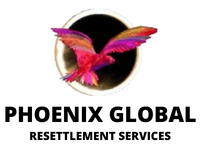Moving to Australia can be an good decision. With its beautiful landscapes, high standard of living, and diverse culture, Australia has become a popular destination for individuals and families seeking new opportunities. However, moving to a different country requires careful planning and understanding of the immigration process. If you’re considering relocating to Australia, here’s a guide to help you navigate the path to your new home.
1.Determine Your Eligibility:
The first step in moving to Australia is to determine your eligibility for a visa. Australia offers various visa options, including skilled migration visas, family visas, student visas, and business visas. Each visa category has its specific requirements and criteria, so it’s essential to research and identify the most suitable option based on your circumstances.
2. Research Australian Cities and Job Opportunities
Australia is a vast country with diverse cities, each offering unique lifestyle and employment opportunities. Conduct thorough research on different cities to find the one that aligns with your preferences and career prospects. Look into industries that are thriving in Australia, such as healthcare, engineering, information technology, and construction, to identify potential job opportunities.
3. Improve Your English Language Skills:
English is the primary language spoken in Australia. To increase your chances of success in the job market and daily life, it’s crucial to have strong English language skills. Consider enrolling in English language courses or taking proficiency tests like the IELTS (International English Language Testing System) to demonstrate your proficiency.
4. Apply for a Visa:
Once you have determined the appropriate visa category, gather all the necessary documents and submit your visa application. The application process can be complex and time-consuming, so it’s recommended to seek assistance from a migration agent or lawyer who specializes in Australian immigration. They can guide you through the process, ensure that your application is complete, and increase your chances of a successful outcome.
5. Work and Skills Assessment:
Depending on the visa category you’re applying for, you may need to undergo a skills assessment. This assessment validates your qualifications and work experience against Australian standards. It’s essential to research the specific requirements for your occupation and engage with the relevant assessing authority to have your skills assessed.
6. Health and Character Checks:
As part of the visa application process, you’ll be required to undergo health and character checks. This involves providing medical reports and police clearance certificates to demonstrate that you meet the health and character requirements set by the Australian government.
7. Consider Short-term Options:
If you’re unsure about committing to a permanent move, you may consider short-term options such as working holiday visas or student visas. Working holiday visas allow individuals aged 18-30 from eligible countries to work and travel in Australia for up to one year. Student visas allow you to study in Australia and may provide a pathway to permanent residency.
8. Plan Your Finances:
Moving to a new country involves financial considerations. Research the cost of living in Australia, including housing, transportation, healthcare, and education expenses. It’s essential to have sufficient funds to support yourself and your family during the initial period of your move.
9. Seek Employment:
Once you have secured a visa, it’s time to start looking for employment opportunities in Australia. Utilize online job portals, professional networks, and recruitment agencies to explore potential job openings. Tailor your resume and cover letter to meet Australian standards and highlight your relevant skills and experience.
10. Settle In and Embrace the Australian Lifestyle:
Moving to a new country can be challenging initially, but with time and effort, you can settle into your new life in Australia. Embrace the Australian lifestyle, get involved in local communities, and make an effort to connect with people. Take advantage of the diverse cultural experiences and enjoy the stunning natural beauty that Australia has to offer.




